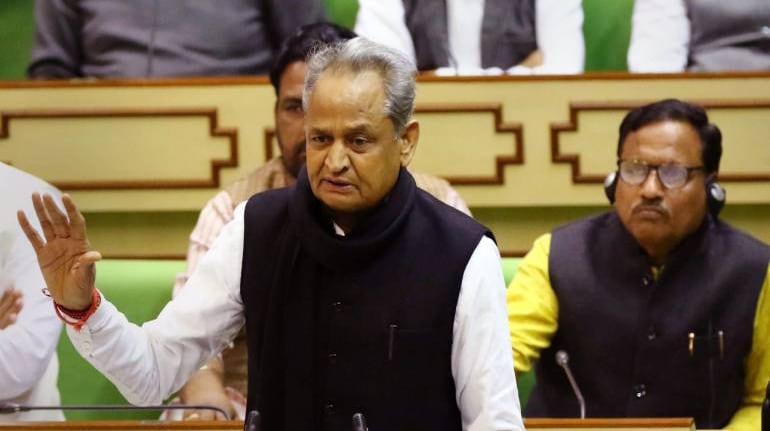



The Rajasthan government has decided to purchase wheat at market price and distribute it only among all the poor and needy under the National Food Security Act scheme.
Chief minister Ashok Gehlot said that his government has repeatedly requested the Central government to release more wheat so that wheat could be distributed to all beneficiaries.
“The state government has decided to purchase wheat on market price and distribute it among those who are deprived of wheat under the National Food Security Act.
“The centre is allotting the wheat on the basis of 2011 census but the population has increased and more wheat is needed,” he told reporters in a video conference on Wednesday.
Coronavirus News India LIVE Updates
The chief minister has requested the prime minister to allot additional 30,000MT wheat per month to the state so that the requirement could be fulfilled. There are 4.46 crore families covered under the NFSA in the state as per the census of 2011 which, according to a press release, should be 5.04 crore now as per the current population.
The chief minister also rejected allegations that the government was soft in Ramganj and cases were rising in Muslim dominated area, saying some people were spreading rumours and people should not pay heed.
“The sole aim of the government is to save lives. We made Bhilwara model which is named as 'ruthless containment'. The government is ruthlessly acting (to contain the spread). So, can the government afford to appease a community on the ground of religion by giving them relaxation?” he asked.
“There are people who are saying that the government has given relaxation to Muslims and they are spreading corona. There cannot be anything more rubbish than this. The police have directions to give similar treatment to all those, irrespective of the religion, who violate curfew norms and break rules,” he said.
“Our aim is to save lives and to restore the normalcy like Wuhan of China, where there was a lockdown for more than two-and-a- half month and normalcy has returned there now,” he said
Highlighting the measures taken to contain the spread of cornavirus and for effective compliance of lockdown, the chief minister said that a fine of Rs 100 will be charged from the persons found spitting at public places.
The state government has already issued order for taking action under section 188 of IPC if anyone is found spitting after chewing tobacco or non-tobacco products on such places.
Gehlot said that prime minister will be holding a video conference with chief ministers of states on April 27 and the issues of the migrant labourers will be main agenda of the Rajasthan government.
“Migrant labourers are stranded in states and they should be allowed to go to their homes. Similarly, migrants of Rajasthan are also stuck in other states and they want to return to the state,” he said.
Follow our full coverage of the coronavirus pandemic here.
Discover the latest Business News, Sensex, and Nifty updates. Obtain Personal Finance insights, tax queries, and expert opinions on Moneycontrol or download the Moneycontrol App to stay updated!
Find the best of Al News in one place, specially curated for you every weekend.
Stay on top of the latest tech trends and biggest startup news.